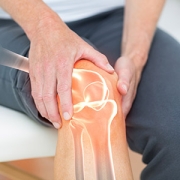The Long-Term Benefits of Minimally Invasive Orthopedic Surgery for Your Health and Well-being
Welcome to the official blog of Dr. Brandon Gough, M.D., your trusted Scottsdale, Arizona orthopedic surgeon. Today, we’re diving into a topic that’s revolutionizing the field of orthopedics – Minimally Invasive Orthopedic Surgery. In this comprehensive guide, we’ll explore how this innovative approach to orthopedic surgery can not only address your immediate health concerns but also bring lasting benefits to your overall well-being.
Understanding Orthopedic Surgery
Orthopedic surgery is a specialized field of medicine that focuses on the diagnosis, treatment, prevention, and rehabilitation of musculoskeletal disorders. These disorders affect the bones, joints, ligaments, tendons, muscles, and nerves in your body. Whether it’s a sports injury, arthritis, or a degenerative condition, orthopedic surgery can provide the relief you need.
The Evolution of Orthopedic Surgery
Traditionally, orthopedic surgery often involved large incisions, extensive tissue damage, and prolonged recovery periods. However, with advancements in medical technology, the field has witnessed a remarkable transformation – the rise of minimally invasive orthopedic surgery.
Benefits of Minimally Invasive Orthopedic Surgery
- Smaller Incisions, Less Scarring: Minimally invasive procedures involve small incisions, typically less than an inch long. This reduces scarring and decreases the risk of infection. Patients are often pleased with the cosmetic results, as these smaller scars are far less noticeable than those from traditional open surgeries.
- Faster Recovery: Compared to traditional open surgery, minimally invasive techniques often lead to shorter hospital stays and quicker recoveries. This means less time away from work, hobbies, and your loved ones. By minimizing the disruption to surrounding tissues, you can regain your independence and quality of life sooner.
- Reduced Pain: Smaller incisions and less disruption to surrounding tissues result in reduced postoperative pain. This often translates into the need for fewer pain medications and a more comfortable recovery process. Less pain means you can focus on your rehabilitation and overall well-being.
- Minimal Blood Loss: Minimally invasive surgeries are associated with minimal blood loss, lowering the risk of transfusions and related complications. This is particularly beneficial for patients with pre-existing medical conditions that affect blood clotting or those who want to minimize the risks associated with surgery.
- Lower Infection Risk: Smaller incisions and a reduced exposure of internal tissues to external contaminants contribute to a lower risk of surgical site infections. A lower infection risk means a smoother recovery process and fewer potential complications.
- Preservation of Healthy Tissue: Minimally invasive procedures allow for greater precision, enabling orthopedic surgeons to preserve healthy tissue and minimize damage to adjacent structures. This preservation can have a significant impact on your long-term functionality and quality of life.
- Improved Cosmetic Outcome: The smaller incisions in minimally invasive surgery lead to improved cosmetic results, as scars are less noticeable. Feeling good about your appearance can boost your self-esteem and overall sense of well-being.
Conditions Treated with Minimally Invasive Orthopedic Surgery
- Arthritis: Minimally invasive techniques, such as arthroscopy, can be used to treat arthritis by removing damaged tissue or repairing joints. This not only alleviates pain but also helps preserve joint function over the long term.
- Sports Injuries: Athletes often benefit from minimally invasive procedures for the repair of torn ligaments, tendons, and cartilage. These procedures aim to restore your full range of motion and get you back in the game as soon as possible.
- Spinal Disorders: Conditions like herniated discs and spinal stenosis can be addressed with minimally invasive spinal surgery, reducing the risk of nerve damage and providing long-term relief from back pain.
- Fractures: Some fractures can be treated with minimally invasive techniques, allowing for quicker healing and less pain. This is especially important for elderly patients, as it can significantly improve their overall quality of life.
Choose Dr. Brandon Gough for Minimally Invasive Orthopedic Surgery
When seeking a Scottsdale, Arizona orthopedic surgeon for minimally invasive orthopedic surgery, Dr. Brandon Gough is your trusted choice. With years of experience and a commitment to excellence, Dr. Gough provides personalized care to ensure you receive the best possible outcomes. His expertise in minimally invasive techniques ensures that you benefit from the latest advances in orthopedic surgery.
Dr. Brandon Gough Is Here For Your Health And Well-Being
Minimally invasive orthopedic surgery is not just a medical breakthrough; it’s a game-changer for patients looking to improve their health and well-being over the long term. If you’re in need of orthopedic care in Scottsdale, Arizona, contact us to learn more about Dr. Brandon Gough, M.D., and how minimally invasive orthopedic surgery can benefit you in the long run. Don’t let musculoskeletal issues hold you back – take the first step toward a healthier, happier future today. Trust in Dr. Gough’s expertise and experience to help you on your journey to recovery and lasting well-being.











